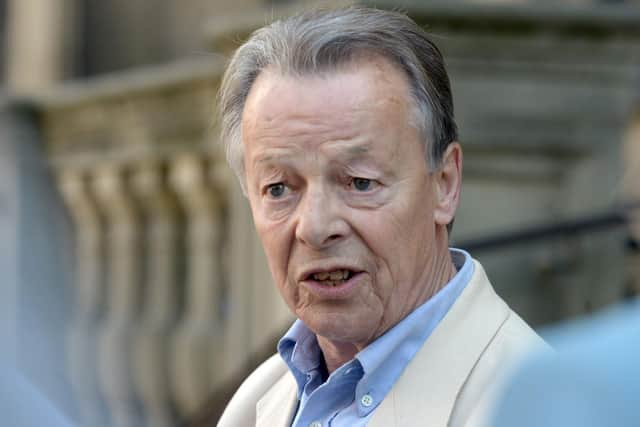'No one held to account' as Sheffield Council says sorry for misleading courts over tree-felling scandal
In March last year an inquiry led by Sir Mark Lowcock found the council had misled the courts during a long-running saga involving the felling of thousands of street trees as part of highways contract with its partner Amey called Streets Ahead.
While the contract between the two parties had set a target to remove 17,500 trees and replace them with saplings, this information was not in the public domain for years or provided to legal hearings about the matter. Around 6,000 trees – many of them healthy – were felled before the programme was halted in March 2018 in the face of increasing protests.
Advertisement
Hide AdAdvertisement
Hide AdThe inquiry report states that the courts were “misled on two occasions” in regard to its published ‘five year tree management strategy’ document. The document was presented as an accurate account of the council’s policy with a focus on saving trees where possible but differed in reality from the contract. The inquiry found a “false impression” had been presented to two High Court judges and that the council as an organisation had known the strategy was misleading.


However it did not find the outcome of either case, both of which went in the council’s favour, had been altered by the misleading evidence and also said there was no evidence that any individual had given knowingly false evidence and therefore committed perjury.
An apology over the matter has now been sent to Lord Chancellor Alex Chalk by the council’s chief executive Kate Josephs, who was not in post at the time of the issue.
The apology states: “The fact that this misleading document was not produced by the council for the purposes of the court hearings and thatitdid not impact the outcomes in those hearings does not, as the Inquiry states, undermine the seriousness of the courts being misled by a document created by the Council.
Advertisement
Hide AdAdvertisement
Hide Ad"The Inquiry also finds that although no individual involved in the proceedings was aware that the court was being misled the Council as an organisation had collective knowledge that the Court was being misled, through the combined knowledge of its employees.
"The Council could, and should, have been clearer both generally and specifically to the Court and other parties about the provenance of the January 2016 Five Year Street Management Policy and the differences between that document and the contractual documents produced by Amey.
"For those failings we offer a sincere and unreserved apology to the courts.”
Tree campaigner David Dillner, who led a 2016 legal challenge to the felling programme which was the subject of the first case in which the council misled a court, said today that he was disappointed no individuals have been held accountable for what happened.
Advertisement
Hide AdAdvertisement
Hide Ad"They lied to the courts and it leaves a very nasty taste in my mouth. No one has been held to account and somebody should be,” he told The Yorkshire Post.
Amey had created an internal version of the strategy in 2012 and in January 2016 the council published a public version with new additions - including a series of 25 alternative options that would be considered before a tree was removed.
The inquiry said Amey “expressed reservations” about it being released as their document when the council had amended it and asked that six of the options be removed from the list, as they were either not suitable or not allowable in the contract, or more broadly in the UK highways sector.
But rather than removing them, the document was rebranded as a Streets Ahead rather than Amey-produced product.
Advertisement
Hide AdAdvertisement
Hide AdA judicial review of the felling programme was launched by campaigners led by Mr Dillner in February 2016, with the judge in the case ultimately ruling against the legal action and citing the strategy as an “important document”.
In later 2016, Amey told an Independent Tree Panel that the listed 25 alternative solutions were “not an accurate representation of their contract” - stating only two would be used regularly and many were either only short-term options or entirely unsuitable.
As the dispute continued, the council successfully sought an injunction against protesters in mid-2017 which “quoted extensively” from the document when the ruling was set out.
The inquiry said the council had misled the ITP, the public and the courts.
Advertisement
Hide AdAdvertisement
Hide AdIn relation to the latter, the inquiry ruled that the council’s actions fit the category of “passively allowing the court to rely on something that is known to be false and not correcting the record”.
However, the inquiry report added that legal advice has suggested the omissions did not affect the outcomes of either court case. It also said it had seen “no evidence” of any individual committing perjury, which requires false evidence to be presented knowingly.
The inquiry said the actions of the council were “unacceptable for a public body and it had a significant detrimental impact on the dispute”.
Comment Guidelines
National World encourages reader discussion on our stories. User feedback, insights and back-and-forth exchanges add a rich layer of context to reporting. Please review our Community Guidelines before commenting.